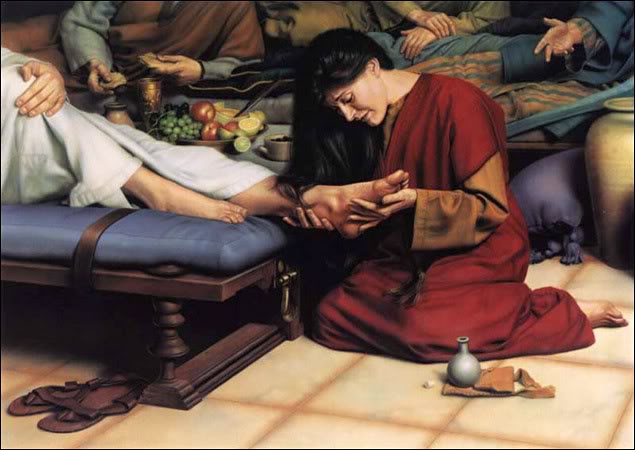He told a parable to those who had been invited, noticing how they were choosing the places of honor at the table.
Lk 14: 1. 7-14
Please go to << 22nd Sunday in Ordinary Time 2010 >>
Please go to << 22nd Sundya in Ordinary Time 2007 >>
From Mobile Gabriel:
14:1 This verse introduces the last Lucan
controversy on a Sabbath. Luke uses the symposium (a popular Greek literary
genre) as a framework in which Jesus answers the questions and problems facing
the Lucan communities. The events of Luke 14:1-14 do not appear in any other
Gospel.
14:7 This is the first part of the "wisdom teaching" of
Jesus that was set up in the symposium format. The word, "invited" is
used for the "apparently elect" and for "those who consider
themselves elect." This sets up a contrast in verses 16-24 between the
elect and nonelect.
14:11 Luke places a theological meaning on, what had
been, a proverb of secular Roman and Greek wisdom. In this context it means
that God will not be fooled by one's self-promotion. God is immune to any
public relations tricks we can try to pull on Him.
14:13 The people Luke
lists here are those who were often considered by contemporary writers to be
forbidden entry into the eschatological or Messianic banquet. Luke added
"the poor" to the commonly used list. The term, "the poor,"
was often used in Jewish literature as a name for Israel or the elect within
Israel (the poor of God). Perhaps Luke is ironically expanding the list of the
elect.
14:14 Those who are rewarded are those who have shared food and life
with the disadvantaged.



















